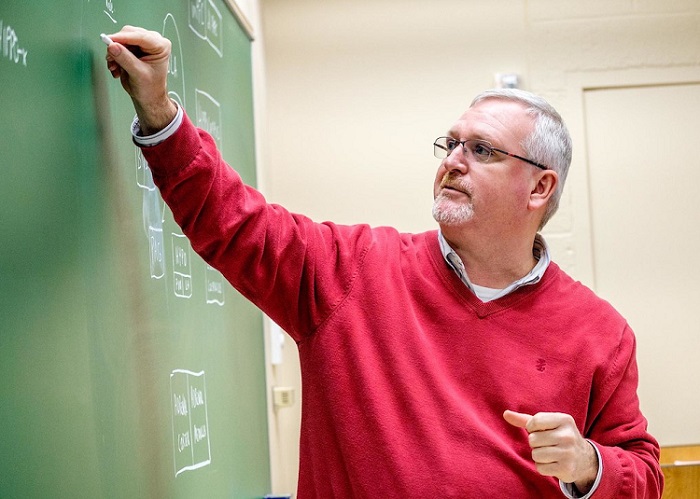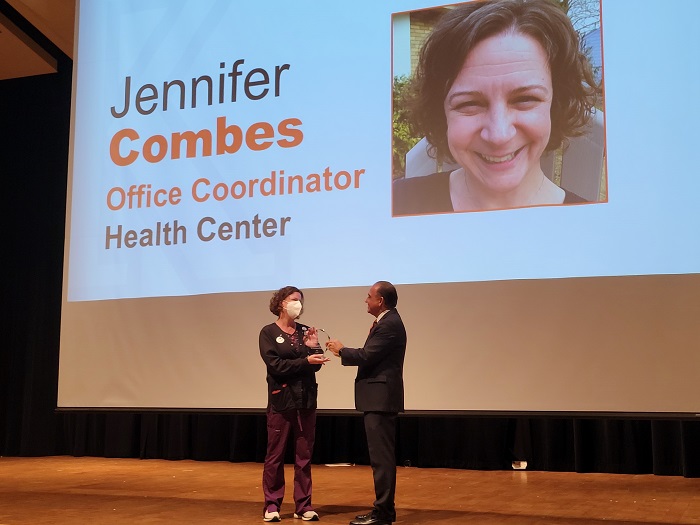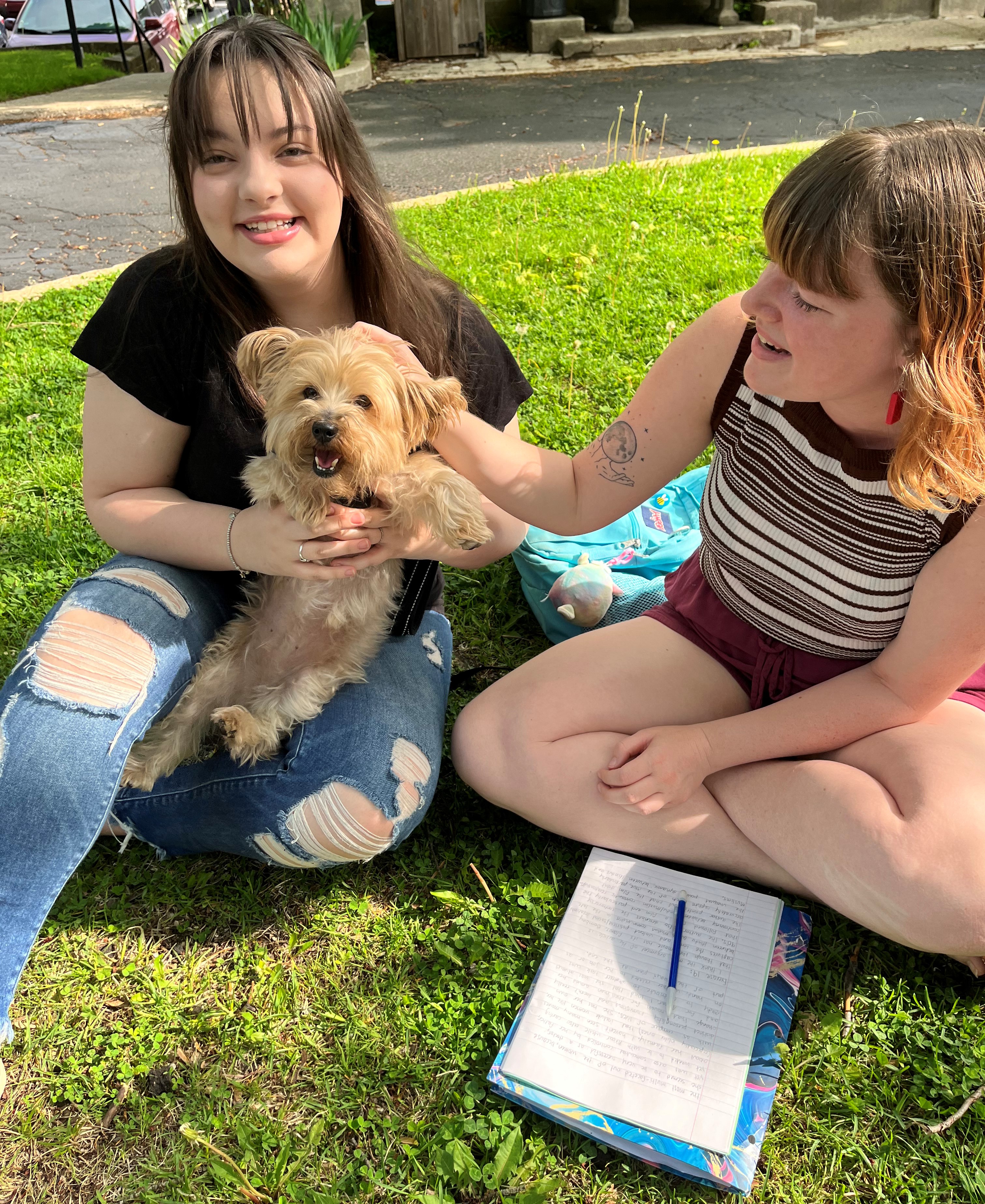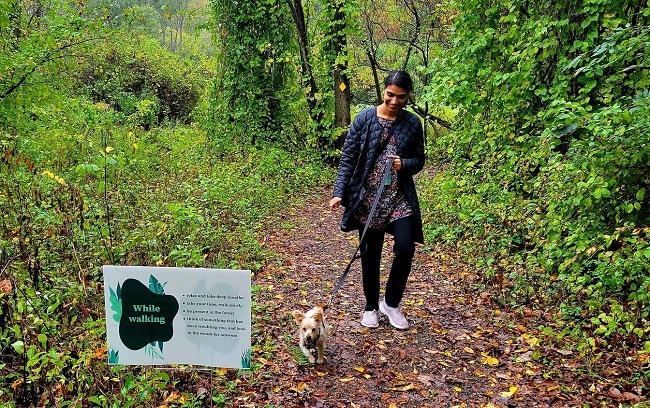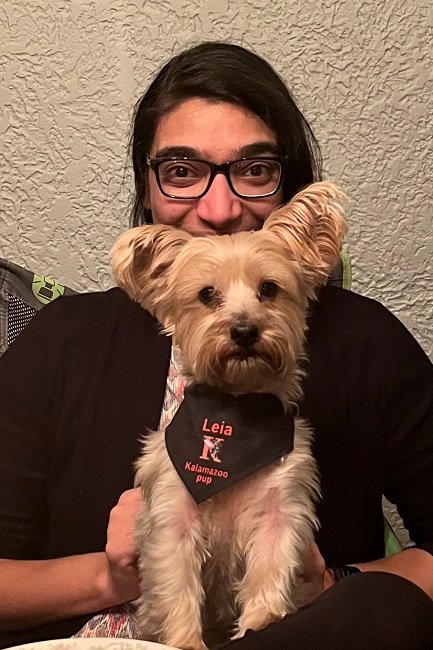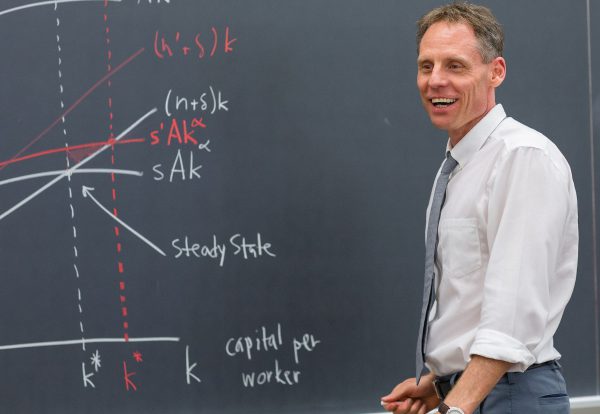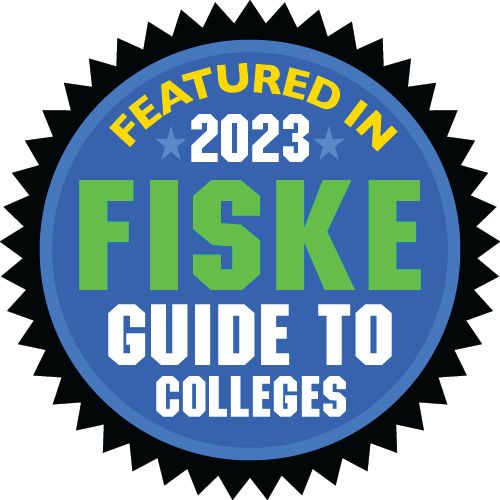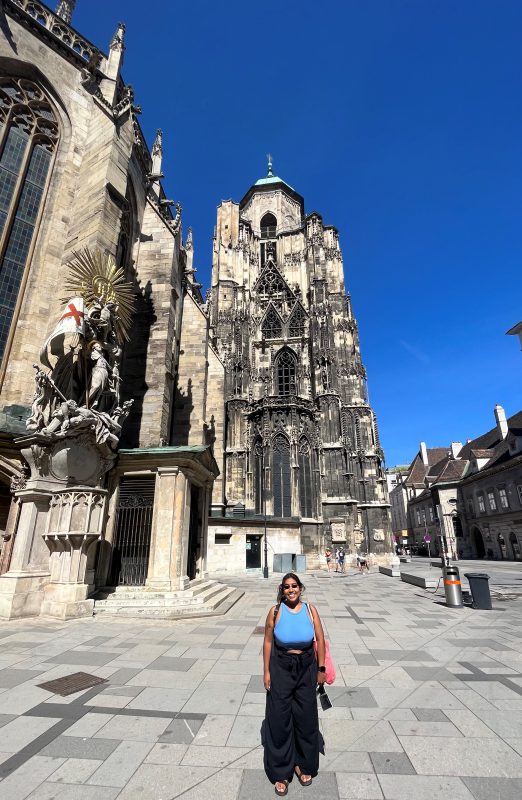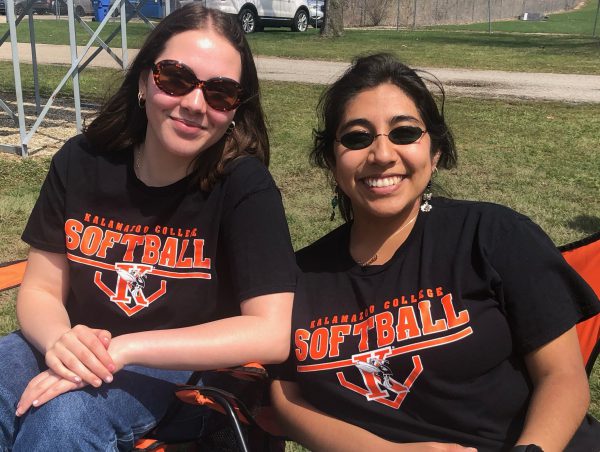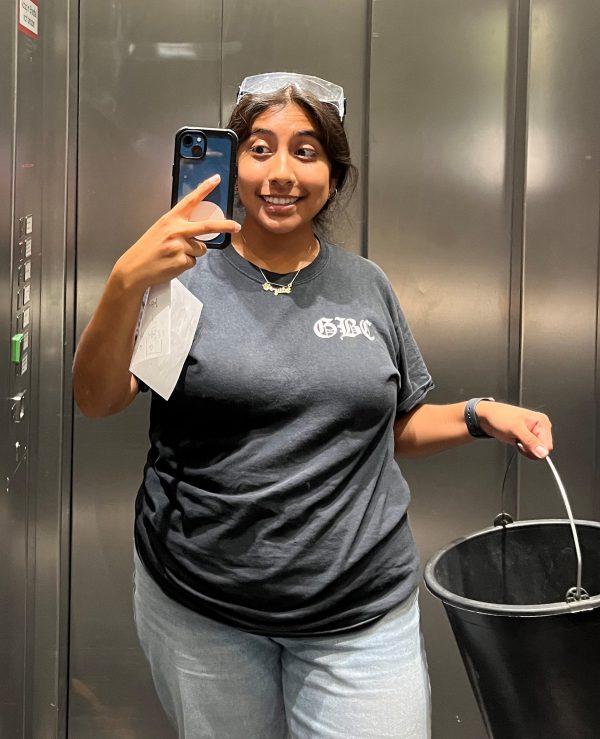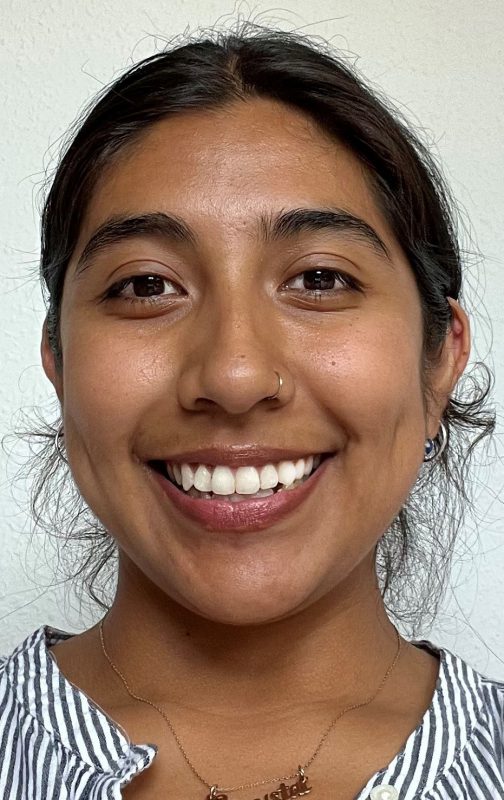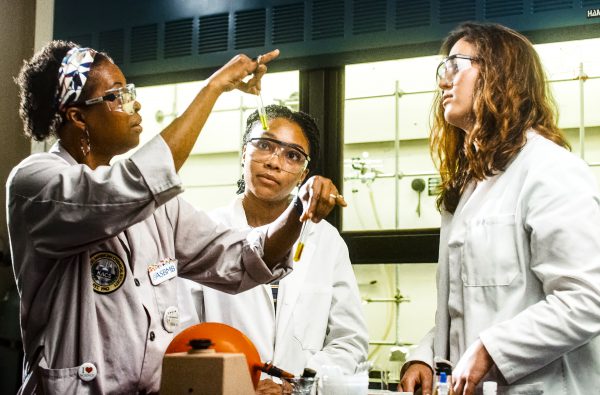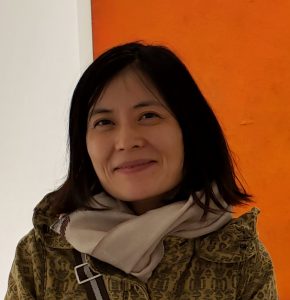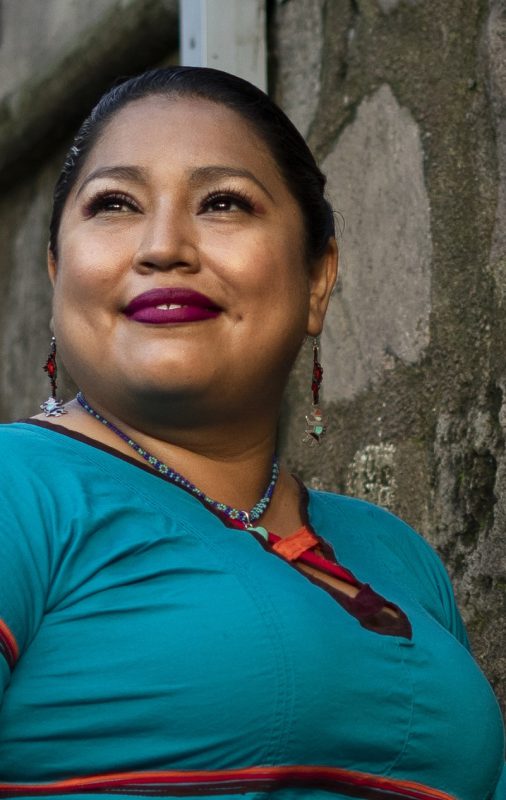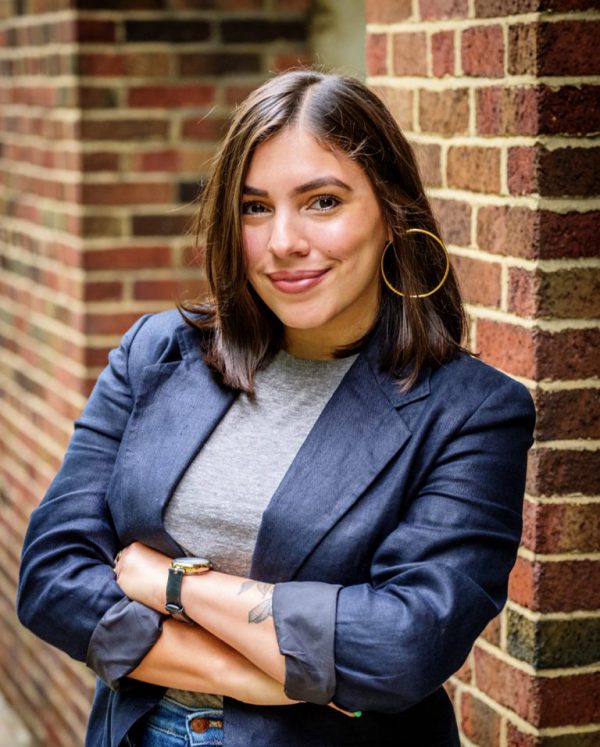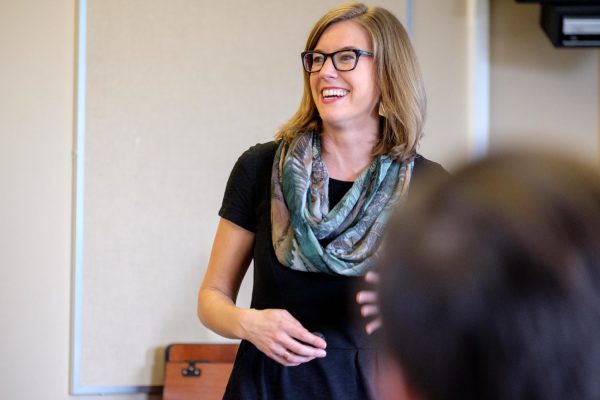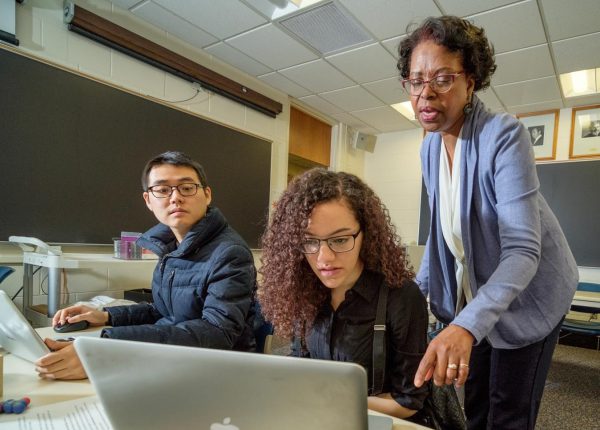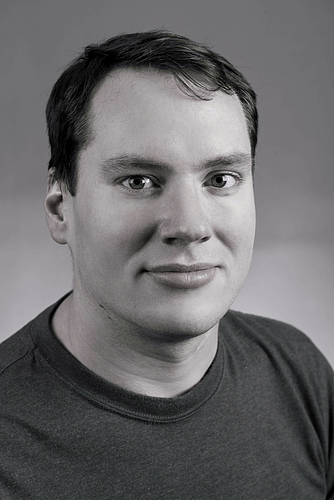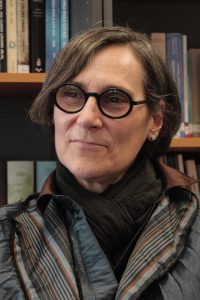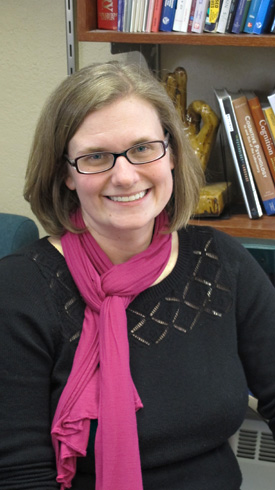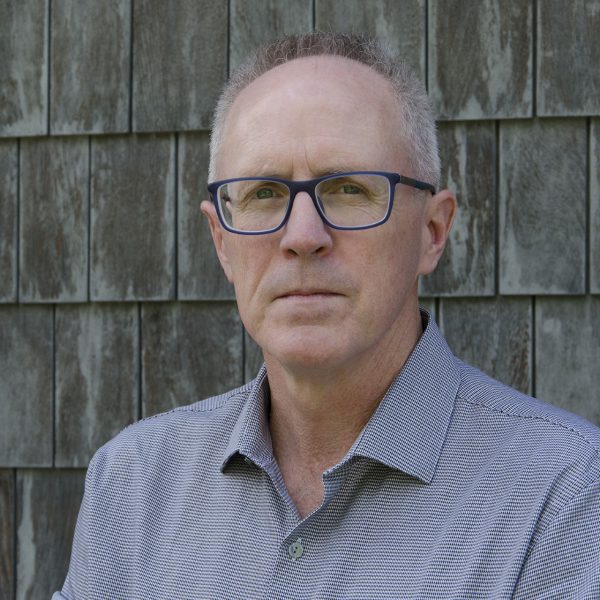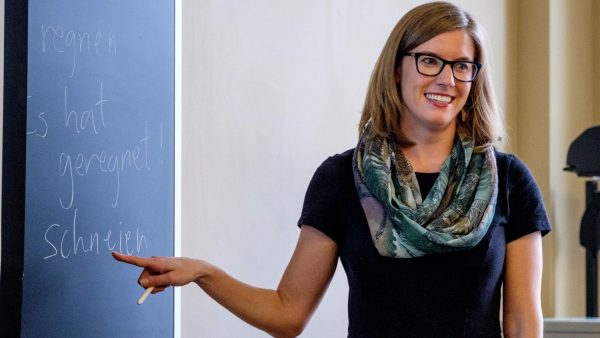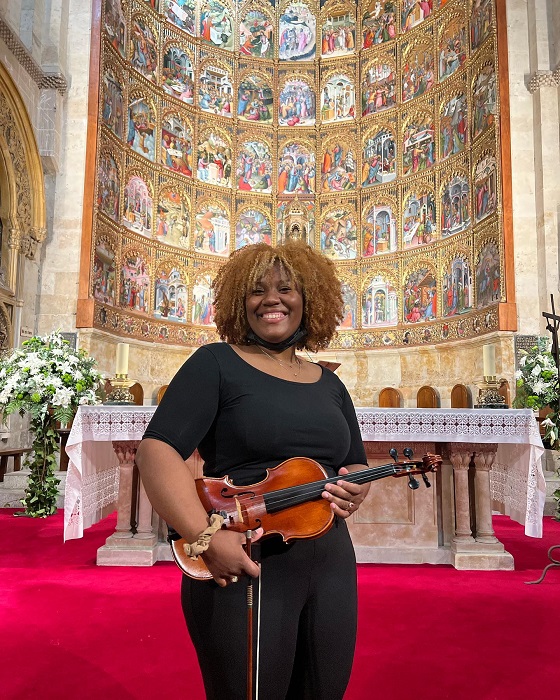
Symphony Orchestra this summer with Kalamazoo College Music Chair
Andrew Koehler.
Jacqueline Mills ’18 has an inspiring story of how a liberal arts education continues to benefit her life after Kalamazoo College as her appreciation of music has blossomed from an interest into a lifelong passion.
Before majoring in chemistry at K, Mills began playing violin at age 9. During her middle school years, she developed a music outreach program, V is for Violin, where she would visit her former pre-school to play the violin and introduce children to the world of classical music.
“A lot of young people knew rap, pop and other genres of music, but this was a time when arts programming seemed to be on the decline in schools,” Mills said. “The lack of music programming in public schools was one of the reasons I had to seek out alternative weekend programs to develop my musical talents further.”
As Mills progressed, she didn’t expect music to play the role it did in her college years, instead anticipating it to be more of a side interest or outlet.
“My mindset was that I had just spent 10 years playing the violin and I didn’t want to waste it, so I decided to try out,” Mills said.
That tryout was for the Kalamazoo Philharmonia, an ensemble of students, faculty, amateur musicians and professional musicians of various ages that performs three concerts a year under Music Director and K Music Department Chair Andrew Koehler, who immediately and enthusiastically accepted her to the group and with whom she also took violin lessons.
Later, her study abroad experiences in Perth, Australia, were significant because she interned at the Aboriginal School of Music. On this site, Aboriginal students learn about a variety of music genres.
“I wasn’t in an orchestra in Australia, but it was still nice to have that connection to music,” Mills said. “I was learning about their culture and other instruments they have. It reignited a deeper understanding of music in me that I wanted to pursue further, in the sense that music can be a part of my life forever even if it’s not my profession.”
By the time she had returned to K, Koehler had recognized in Mills her growing enthusiasm for music.

who is the music director of the Kalamazoo Junior
Symphony Orchestra, leads the orchestra in a
performance.
“Jacqueline was always a really thoughtful, observant, self-aware kind of musician,” Koehler said. “These are qualities that I feel are really essential to good music making. When you’re in the practice room, you’ve got to be thinking about what is working and what is not and ask, ‘How can I bridge the gap?’ Jacqueline studied chemistry here at K, so music wasn’t necessarily going to be the central thing that drove her. Yet she was really a gifted violinist. Like every K student, she was busy and had to fight to make time for music, but she always carved out the space to make sure that she kept improving, day by day and year after year.”
Additionally, by this time, Koehler was leading the Kalamazoo Junior Symphony Orchestras (KJSO), a group representing around 42 schools in 23 area communities. KJSO has a tradition of self-funded touring for performances that started in Europe in the 1960s and it was planning a trip to perform in South Africa during Mills’ senior year.
“She and I were still working on private lessons and she was playing in the Philharmonia,” Koehler said. “She had spent her junior year in Australia, so I floated the idea to her of going with us to South Africa. I said, ‘One doesn’t get to go to South Africa every day. Is there any chance you might be interested?’ And she was.”
But that was just the first time Mills would tour and perform with KJSO. This past summer, after she took the initiative to approach Koehler about the trip, she toured Spain and Portugal with the group where they had two performances.
“With the South Africa experience cemented in her mind, when she heard through the grapevine about this new tour, and was already enjoying being more established and working a job, she actually contacted me this time,” Koehler said. “Of course, I was over the moon. I’m always delighted for any opportunity to make sure a K alumna is still finding ways to make music. And it was just such a beautiful opportunity to reconnect with Jacqueline in particular.”
Mills admitted there was a bit of a spoken language barrier in Spain and Portugal that she hadn’t encountered in South Africa, but fortunately, music is a universal language.
“It was a unique experience, in South Africa and Europe alike, to be both a tourist and a performer,” Mills said. “It was harder in Spain because I don’t speak the language, so trying to communicate about our concerts was difficult. But it doesn’t matter what your nationality is. If you’re playing well, the music will resonate.”
KJSO performed for a small crowd in a concert hall in Madrid before moving on to Salamanca, where, Koehler said, it seemed the whole city turned out to pack a historic cathedral.
“There was an intensity to the experience,” Koehler said. “It was just so special to be in this amazing place, playing music that combines some American composers, a Portuguese composer and, of course, a Spanish composer. There was a kind of a cultural ambassadorship that we were trying to achieve with the program, and sharing it with this audience that was wildly enthusiastic and cheering us on, is just something that we will long remember.”
Mills’ story is significant for Classical Music Month, which first was instituted in September 1994 by President Clinton. His proclamation stated, “Classical music is a celebration of artistic excellence. This month we exalt the many talented composers, conductors and musicians who bring classical music to our ears. Music is a unifying force in our world, bringing people together across vast cultural and geographical divisions.”
In her professional life, Mills has worked in a lab as a quality control chemist. She’s also performed some research involving sickle cell disease. She now works with the City of Detroit in an adult education program called Learn to Earn, which aims to break intergenerational poverty and position job seekers on a pathway to the middle class. Yet she always wants her career to allow her time to bring classical music to the ears of children and people around the world.
“In the short term, I would like to join a community orchestra,” Mills said. “But long term, I hope to start a nonprofit or foundation to provide instruments and classical training to underrepresented children as a way to celebrate and invite youth into the fine arts. From my experience, having continued access to instruments and private lessons at a young age can be half the battle and I want to provide that support to my community. I would also like V is for Violin to pick up where I left off by going into pre-schools and elementary schools and introducing kids to the world of classical music; showing them that it’s not a dead art confined to a specific race and gender. Music is a universal language that can take you anywhere, and if I can do it, they can do it, too.”
Koehler said he’s proud not only of K’s music majors, but all K students like Jacqueline who go on to make music a permanent fixture in their lives.
“Of course, it’s very rewarding to work with students who really dive all the way with us into the musical field,” Koehler said. “But no less valuable, in terms of what we offer to a liberal arts campus and in terms of what we aspire to in our teaching, is to see students who hold space for music as part of a fuller, truly human existence. My hope for those who have played in the Philharmonia or any of our ensembles, no matter what path they go on, is that music remains a part of their experience, as it has for Jacqueline.”

